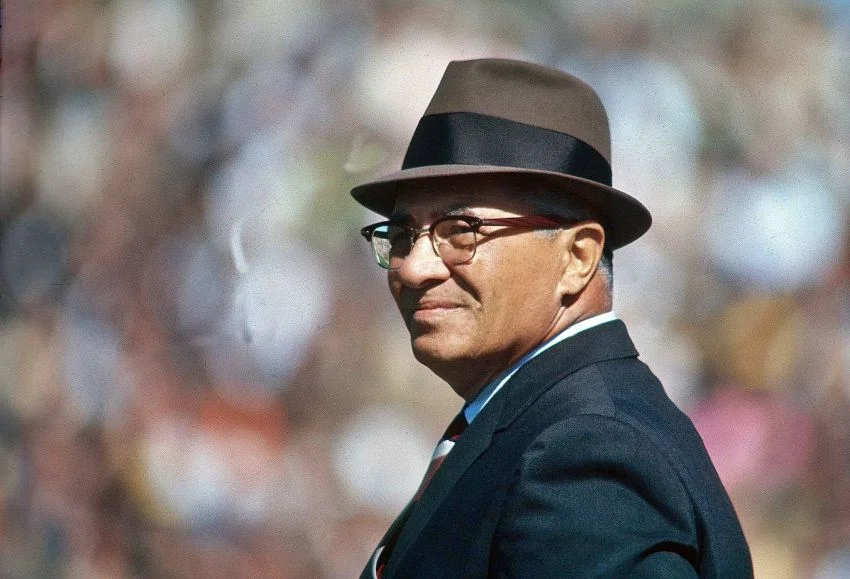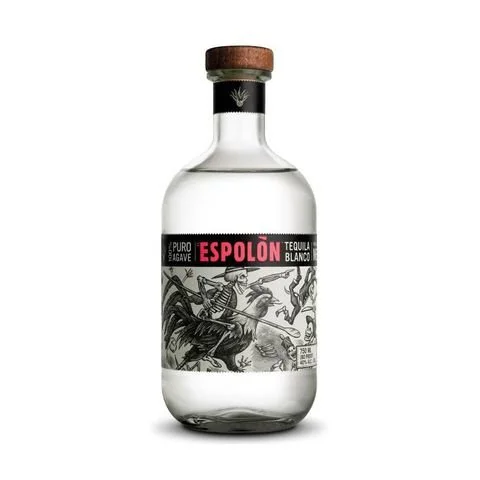On February 19, 2015, Harris Wittels tragically passed away after taking a heroin overdose alone at home in his Los Angeles home. At 30 years old, he was only 30 years old.
My son was the world’s greatest comedian. He grew up in an affluent, white suburban neighborhood as a “nice Jewish boy.” His dad is a physician and I am a retired teacher, yet none of our kids ever attempted heroin! These kinds of kids don’t do such things! By sharing our story I hope other families will gain insight into what we didn’t know at the time.
Harris has achieved more in his 30 years than many can in a lifetime. At his Bar Mitzvah speech, the Rabbi stood up and warned to watch out for this kid; he would soon be at the Laff Stop! At 18 years old, Harris won third place in Houston’s funniest comedian contest at The Laff Stop!
He attended Houston High School for Performing and Visual Arts before graduating from Emerson College with a degree in TV/Video production.
At 22, Sarah Silverman discovered him performing standup in a club. She asked for him to submit some of his writing for her upcoming TV series on Comedy Central and the rest is history – he quickly ascended the ladder of success.
He wrote numerous Hollywood scripts. He coined the term “humblebrag,” which now appears in the Oxford Dictionary, and wrote a book about it entitled Humblebrag: The Art of False Modesty.
On its jacket, he wrote: “Humblebrag – by Harris Wittels who would love some free time but has been too busy writing for shows such as ‘Parks and Recreation’, ‘Eastbound & Down’ and many others!”
He performed standup comedy alongside Louis C.K., Aziz Ansari, and Sarah Silverman before passing away as co-executive producer of the beloved television series “Parks and Recreation,” where he was occasionally seen as an animal control guy.
“All Harris ever wanted was to make people laugh, yet on the inside, he wasn’t smiling”
Table of Contents
Harris was widely known for his jokes. Aziz described Harris Wittels as the go-to comedian for comedians everywhere; in fact, Harris even wrote a joke for President Obama!
He enjoyed leftovers and McDonald’s just as much as gourmet restaurants. His devotion to Phish was undying – he began attending their concerts at 15 and saw over 300 performances over time. When Sarah Silverman hired him, he insisted on part of his contract being time off for these concerts – it was part of his religion! Who does that?!?!
He did many hilarious podcasts with Scott Aukerman of “Comedy Bang Bang” fame as well as one very serious podcast with Pete Holmes about his heroin addiction in 2014. It is well worth listening to hear the reality of chasing heroin.
Additionally, he drummed for the band “Don’t Stop or We’ll Die.” His last project was writing and co-producing the Netflix series “Master of None”, where he was set to star as Aziz Ansari’s best friend; unfortunately, he passed away instead. The show earned four Emmy nominations and won one category!
Harris Wittels always wanted to make people laugh, yet on the inside, he wasn’t having fun. At 12 years old he admitted to using recreational drugs – how could we have been unaware? We didn’t bury our heads or act stupid; rather, as his therapists attested, we were great parents!
Throughout Harris’ life he made straight As, had tons of friends, and was very driven about what he wanted out of life – always the self-starter that never needed encouragement to complete assignments or receive scholarships to college. We never had to remind him about homework either, as Harris took responsibility for everything himself; even getting his own scholarship for college!
At some point during his high school career, Harris tried cocaine and ended up staying home from school for three days because it made him sick. From that time on, he made a vow not to become a drug user.
Over the course of his last few years in Los Angeles, we would visit him but always felt like intrusives; eventually, we decided not to visit anymore due to his hectic lifestyle in Hollywood land.
Although he came home for holidays and special occasions less frequently over time, I saw the light go out of his eyes without suspicion – because he was too busy being so successful! Harris became an extremely high-functioning addict while simultaneously going through recovery from addiction.
I knew Harris was seeing a therapist and was excited about it. Three days before her wedding and two years before his passing, Harris finally admitted to us his addiction to OxyContin.
Despite our best efforts to keep him away from us, the drug took hold of his brain – something which would never have occurred had the old Harris not taken such drugs for help.
A year after their daughter was born, Harris Wittels decided to enter rehab – finally sharing this news with us during one of Malibu’s plushest rehab facilities where he began having meaningful interactions once more with us again.
Once he left, we thought the drama was over. Six months later, his sister received a text from Harris that read, “I am heading to Oregon to Hazelden because I am addicted to heroin.
” I saw her face turn ashen as she read me the message and immediately fell on the floor in a fetal position and weeping. Finally, when I called him back, he assured me, “Mom, you caught this in time – don’t worry anymore!”
“I saw the light literally drain from his eyes and yet I saw nothing suspicious. Why? Because he had become an extremely successful high-functioning drug addict.”
I decided to visit him for a family week, where he would stay for one month. At the end of my week there, however, I was only allowed one hour per day with him and his therapist on the very last day; I felt like there had been so much more I wanted to say and learn about how his treatment should proceed after release.
Two months after leaving Hazelden and their sober living home, he entered another rehab. It would have been nice to know he checked himself out early; unfortunately, that week later he passed away. With that information at my disposal, perhaps I could have kept in contact with him more effectively and perhaps his outcome could have been different. There seems to be an immense disconnect between families and rehabs these days.
On the night before he passed away, I received an email from Harris Wittels in which he talked about the conclusion of
“Parks and Recreation” as well as his future life in Manhattan. It read:
On February 19th, Harris Wittels will air one more episode and it’s the special farewell one that will surely leave you in tears. I recently found an awesome place to live in Manhattan – I feel blessed! Love you all so much.
I felt so blessed by our connection, as he worked so hard to land the part in “Master of None” and I hadn’t heard such joyous energy in his voice in a long time. I was sure he had finally found peace within himself. I felt certain that this new chapter in his life was finally coming together.
My world fell apart the day TMZ broke the story of his death and spread it far and wide. I only found out through a text from a friend after it had already gone public, leaving me in complete shock.
We never lose hope, and this loss will never make sense to me. Although I did all I could with what resources I had at my disposal at that time, he ultimately chose not to stay. Now I mourn half of my future: my daughter-in-law, grandchildren, and carrying on his name for generations to come.
I firmly believe the current model of treatment is failing. Overdose deaths are now the leading cause of accidental death in America and it has become an epidemic. That is why I founded GRASP (Grief Recovery After Substance Passing), a Houston support chapter for addiction recovery and advocacy for changes.
Here’s what I wish I had known before losing my precious son:
1. Our current drug laws must be amended, and how we approach this epidemic must shift.
First and foremost, substance misuse must be recognized as a medical issue. Why can some people indulge in their first drink or joint without ever realizing the consequences? For those of us with addictive personalities, it can take at least six months to rewire the brain from opioid use’s physical effects; unfortunately, insurance usually only provides for thirty days at most and then expects people to leave and attend meetings before becoming sober for good afterward.
2. Medically assisted treatment (MAT) using Methadone, Buprenorphine, Vivitrol or Suboxone should all be provided as a means of maintenance.
People may need to take maintenance drugs for life, and that’s okay! The goal should be to treat the individual so they can live as close to normal as possible while giving them time to figure things out. Eventually, they may feel ready to fully quit using maintenance drugs and get treatment without them.
Addiction must be eradicated from society’s stigma; people who struggle with substance abuse should feel comfortable asking for assistance without feeling ashamed or embarrassed; when they do ask for assistance, loved ones must come alongside and assist in finding a suitable form of therapy.
3. It is essential that Naloxone, the drug which can reverse an overdose if administered promptly, be easily accessible.
People who use drugs, their families and friends, as well as all first responders should have access to it. 911 should be called without fear of legal repercussions if someone is with someone who has overdosed. Good Samaritan laws should be implemented everywhere to encourage good deeds.
4. Overdoses can be managed if people take them in a secure environment when other methods fail
5. Regulation of doctors prescribing opioid medications must be strengthened.
Many addictions begin with cocaine and then progress to heroin because it’s cheaper and easier to obtain. Unfortunately, street drugs often contain too many unknowns which can lead to problems down the line.
6. Reformulation of rehabilitation policies must take place.
They must stay abreast of the most up-to-date treatment techniques – not simply rely on 12 steps to solve an issue.
7. Relapses often follow rehabilitation programs.
Families rely on what professionals tell them, and addiction often lies. Each person must be treated individually, and families need to be better informed of which kind of treatment might be necessary. Outpatient care and follow-ups are essential, while AA or Nar-Anon should also be included as part of the process if that does not work for them. Finally, safe medical options must be presented if they prove ineffective for someone.
8. People struggling with addiction should not be classified as criminals.
Drug charges for being caught with small amounts that are obviously not for resale are too severe. We need drug courts that put these people into beneficial treatment instead of jail, and hospitals that have the capability to send those individuals into treatment as quickly as possible.
9. The drug epidemic has reached middle and high schools, as well as into all sectors of society.
There must be more accurate information about drugs and treatment available in every school. Family members who have lost loved ones to overdoses need to share their stories with these kids whenever possible; I have worked tirelessly here in Houston trying to do just that with little success. If only someone had told my son this story when he was twelve and started using recreational drugs!
“Heroin has taken away our son, brother, uncle, friend, writer, comedian, actor, and drummer – it stole too many pieces of our hearts.”
Harris Wittels worked tirelessly to achieve his aspirations and overcome his demons. When he passed away, we were overwhelmed with tributes of how kind and gentle he was to everyone no matter who they were. One of Harris’ famous quotes was, “Let’s stop burning the witch of the week – we are all wonderful and horrible and figuring it out.” He believed in giving people the benefit of doubt; another favorite quote of his was: “Stop future-tripping – all we have is today.”
I have become a warrior mom, striving to live my new life without my hero in it and make some sense out of his passing by saving others from this nightmare. Today is all that remains and I am determined to make the most out of it for him.
He had so much more love, laughter, and talent to give this world; unfortunately, heroin took it all away. It took our son, brother, uncle, friend, writer, comedian, actor, and drummer; it stole too many pieces of our hearts in the process.
A few months before his passing, he said something on a podcast that is worth remembering:
Hey, it’s Harris Wittels from heaven calling. Ahh, it’s pretty awesome up here in heaven – beautiful even. Hitler is up here too for some vegetarianism business so let me just say: bullshit on that! Other than that it’s pretty cloudy up there too and you sit on them so it feels cool. Oh oh gotta’ go to the ice cream buffet now!
How’s that ice cream, son?
Maureen Wittels is a retired elementary school teacher and the founder of GRASP (Grief Recovery After Substance Passing), the Houston chapter.
Need support with substance abuse or mental health concerns? In the U.S., call 800-662-HELP (4357) for the SAMHSA National Helpline at 800-662-HELP (4357) to access the resources available to you.
Also, Read-:
How to convince your workers to use expense tracking software












































